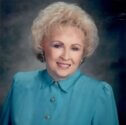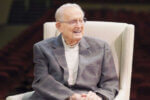In my travels and online, I am encountering increasing numbers of people disillusioned with the prophetic movement. There have been too many prophecies unfulfilled, dates set and missed, catastrophic events that never happened, promises that didn’t unfold, moral failings on the part of some prophetic leaders and a growing number biblical imbalances.
All of this is taking an increasing toll on confidence in the prophetic gift and it has led some to begin to think that the prophetic gift is not for today. Too much of the prophetic movement has gotten it wrong or wandered off base. Credibility has been eroded.
Consider, however, 1 Kings 22 when kings Jehoshaphat and Ahab convened 400 prophets to seek the will of the Lord concerning engaging in battle to retake Ramoth-Gilead from Aram. Four hundred prophets read the desire in the hearts of the kings, listened to a deceiving spirit (22:22-23) and told them what they wanted to hear, “Go up to Ramoth-Gilead and prosper, for the Lord will give it into the hand of the king.”
In his spirit, Micaiah alone knew the truth, but initially spoke in unison with the 400. Only when Jehoshaphat commanded him to do so did he relent and speak what he really knew. “I saw all Israel scattered on the mountains, like sheep which have no shepherd. And the Lord said, ‘These have no master. Let each of them return to his house in peace'” (22:17). He continued, “Therefore, hear the word of the Lord. I saw the Lord sitting on His throne, and all the host of heaven standing by Him on His right and on His left. The Lord said, ‘Who will entice Ahab to go up and fall at Ramoth-Gilead?’ And one said this while another said that'” (22:19-20).
Apparently, a prophetic movement was underway in Israel such that 400 so-called prophets could hold a convention. Who in that day who truly heard God’s voice would have had the courage or the confidence to disagree with the dominant stream, especially with a word that didn’t sound particularly encouraging? Micaiah stood alone against two kings and 400 acclaimed prophetic voices only to suffer humiliation when Zedekiah slapped his face for not joining with the majority (22:24). He then found himself imprisoned and fed sparingly on bread and water (22:27).
Ultimately, 400 “prophets” had it wrong, Israel suffered defeat and Ahab was killed, but regardless of consequences to Ahab and the army because of their inaccurate words, Israel didn’t scuttle prophecy as a ministry because 400 blew it. Because one prophet had it right, prophecy remained a valid ministry in Israel and, later, in the church. It would seem that the key lies not in how many are speaking a particular word, but in discernment to know who is actually speaking from God’s heart. Do we have a dearth of real discernment in the church today? Are we too ready to hear only what excites us and what we want to hear? Have we relegated true prophetic voices, ever the minority, to the sidelines and locked them up because they don’t speak with the voice of the majority?
Repeatedly throughout history, there have been occasions and seasons when the truth has rested not with the dominant word being spoken by the majority, but with the less popular minority. These are seldom respected or well known, sometimes until after their deaths. They threw Jeremiah down a well and disregarded his words. Elijah was called the troubler of Israel. And so it went!
Maybe we need to stop listening so intently to the popular voices who speak with the mainstream and whose words we love to hear. Could it be that a purified remnant speaks a plumb line word that doesn’t win them the platform of widespread popularity? Can we discern the word of God in a hidden but emerging generation of prophetic voices who might not speak what we want to hear, but who certainly speak what we need to hear? In doing so, might we be more edified and more prepared for the glory to come in the midst of a gathering darkness? {eoa}
R. Loren Sandford is the senior pastor of New Song Church and Ministries in Denver, Colorado. He has a bachelor’s degree in music and a master of divinity degree from Fuller Theological Seminary. He has authored a number of books, including Understanding Prophetic People: Blessings and Problems with the Prophetic Gift, Visions of the Coming Days: What to Look for and How to Prepare and his most recent, Yes There’s More: A Return to Childlike Faith and a Deeper Experience of God.
Visit Loren Sandford online at newsongchurchandministries.org.







Leave a Comment
You must be logged in to post a comment.